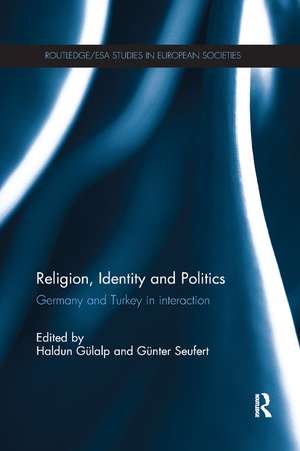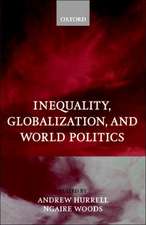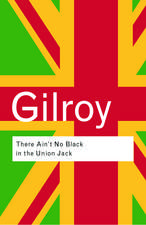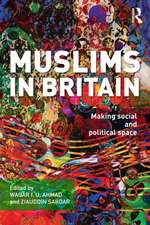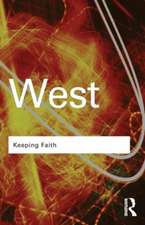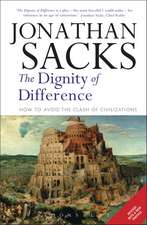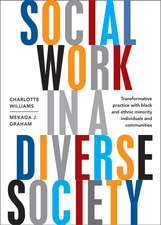Religion, Identity and Politics: Germany and Turkey in Interaction: Studies in European Sociology
Editat de Haldun Gülalp, Günter Seuferten Limba Engleză Paperback – 12 dec 2019
Religion, Identity and Politics examines this mutual interaction, specifically with regard to religious identities and institutions. It opposes the commonly held assumption that Europe is the abode of secularism and enlightenment, while the lands of Islam are the realm of backwardness and fundamentalism. Both historically and contemporarily, Germany has treated religion as a core aspect of communal and civilizational identity and framed its institutions accordingly; the book explores how there has been, and continues to be, a mutual exchange in this regard between Germany and both the Ottoman Empire and modern Turkey.
The authors show that the definition of identity and regulation of communities have been explicitly based on religion until the early and since the late twentieth century; the period in between– the age of secular nationalism– which has always been treated as the norm, now appears more clearly as an exception. This book will be of interest to students and scholars of sociology, politics, history and religion.
| Toate formatele și edițiile | Preț | Express |
|---|---|---|
| Paperback (1) | 430.00 lei 6-8 săpt. | |
| Taylor & Francis – 12 dec 2019 | 430.00 lei 6-8 săpt. | |
| Hardback (1) | 1110.14 lei 6-8 săpt. | |
| Taylor & Francis – 13 iun 2013 | 1110.14 lei 6-8 săpt. |
Din seria Studies in European Sociology
-
 Preț: 415.24 lei
Preț: 415.24 lei -
 Preț: 445.77 lei
Preț: 445.77 lei -
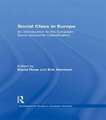 Preț: 417.96 lei
Preț: 417.96 lei -
 Preț: 195.91 lei
Preț: 195.91 lei -
 Preț: 419.50 lei
Preț: 419.50 lei - 15%
 Preț: 423.28 lei
Preț: 423.28 lei - 49%
 Preț: 544.14 lei
Preț: 544.14 lei -
 Preț: 479.67 lei
Preț: 479.67 lei -
 Preț: 423.30 lei
Preț: 423.30 lei - 17%
 Preț: 258.09 lei
Preț: 258.09 lei -
 Preț: 386.22 lei
Preț: 386.22 lei -
 Preț: 271.61 lei
Preț: 271.61 lei -
 Preț: 410.25 lei
Preț: 410.25 lei -
 Preț: 443.47 lei
Preț: 443.47 lei - 14%
 Preț: 301.13 lei
Preț: 301.13 lei - 16%
 Preț: 261.54 lei
Preț: 261.54 lei -
 Preț: 389.60 lei
Preț: 389.60 lei - 18%
 Preț: 945.80 lei
Preț: 945.80 lei -
 Preț: 411.42 lei
Preț: 411.42 lei - 18%
 Preț: 700.75 lei
Preț: 700.75 lei -
 Preț: 413.33 lei
Preț: 413.33 lei - 25%
 Preț: 1304.72 lei
Preț: 1304.72 lei
Preț: 430.00 lei
Nou
Puncte Express: 645
Preț estimativ în valută:
82.29€ • 85.60$ • 67.94£
82.29€ • 85.60$ • 67.94£
Carte tipărită la comandă
Livrare economică 14-28 aprilie
Preluare comenzi: 021 569.72.76
Specificații
ISBN-13: 9780367866839
ISBN-10: 0367866838
Pagini: 216
Dimensiuni: 156 x 234 x 12 mm
Greutate: 0.31 kg
Ediția:1
Editura: Taylor & Francis
Colecția Routledge
Seria Studies in European Sociology
Locul publicării:Oxford, United Kingdom
ISBN-10: 0367866838
Pagini: 216
Dimensiuni: 156 x 234 x 12 mm
Greutate: 0.31 kg
Ediția:1
Editura: Taylor & Francis
Colecția Routledge
Seria Studies in European Sociology
Locul publicării:Oxford, United Kingdom
Public țintă
Postgraduate and UndergraduateCuprins
Introduction 1. The Ottoman Empire, Islam and the Emergence of German National Identity, 1789-1815 2. Political Religion and Autocracy: Wilhelm II’s Encounter with Ottoman Islam 3. "Holy War Made in Germany"? Ottoman Origins of the 1914 Jihad 4. "Our New and Great Cultural Missions in the Orient": German Faith-Based and Secular Missionary Activities in the Late Ottoman Empire 5. Immigrants’ Struggle for Recognition: Religion and Politics 6. Islam and Gender under Liberal-Secular Governance: The German-Islam Conference 7. Muslim Loyalty Put to the Test: The Reception of the Cartoon Controversy in Germany 8. German Anti-Discrimination Law: Accommodating Religious Pluralism or Conserving the Cultural Heritage? 9. The Legal Treatment of Religious Minorities: Non-Muslims in Turkey and Muslims in Germany 10. Religious Conversion and National Identity: Turkish Christians and German Muslims 11. Alevism as a Subject of Religious Instruction in Turkey and Germany 12. Religion on My Mind: Secularism, Christianity and European Identity. References
Notă biografică
Haldun Gülalp is Professor of Political Science and Director of the Center for Global Studies at Yıldız Technical University, Istanbul, Turkey.
Günter Seufert is a senior researcher with the German Institute for International and Security Affairs (SWP) in Berlin.
Günter Seufert is a senior researcher with the German Institute for International and Security Affairs (SWP) in Berlin.
Descriere
This book’s examination of German-Turkish relations reveals the mutually formative processes of religious identities and institutions. Definition of identity and regulation of community have always been based on religion, except during the middle twentieth century, which is mistakenly treated as normative for being identified with the secularism
